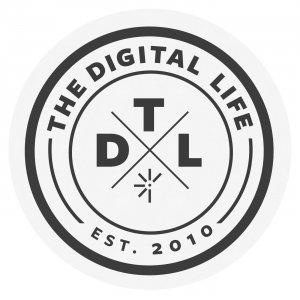The Digital Life

The War for The Smart Home
Jon: Welcome to episode 156 of "The Digital Life," a show about our adventures in the world of design and technology. I'm your host, Jon Follett, and with me is founder and co-host, Dirk Knemeyer.
Dirk: Happy day, Jon.
Jon: Happy day, Dirk. For our podcast today, we're going to discuss the war at home. Specifically, the war over the smart home, and the battle for consumer IOT dominance. There are a number of big players, as we all know. Apple, Samsung, Google, Amazon, as well as the connectivity providers like AT&T, and Verizon, and probably a dozen more. Not to mention all of the device manufacturers like Withings, or D-Link, or Phillips. The landscape of competition for home IOT, smart home IOT, is pretty broad, and there's a surprising emergence of a market leader that at least for me, was kind of unexpected. I think Amazon, with its Echo product, which is essentially a voice UI that's delivered in a couple of different ways.
There's the Echo, which is the cylindrical stereo speaker, and then there's also some portable versions of that, and these little hockey puck versions. There's been increasing buzz and interest in this system, because it allows IOT devices to plug into a complete network and you can control things like lights, your news feed, you can control your music, you can control all these devices with just your voice, and when Echo first came out, there was at least some skepticism as to whether or not this was going to be another Amazon innovation flop, right? You remember the, I think it was called the "Fire Phone" or whatever, Amazon's venture into mobile was going to be, with the multiple cameras, and the big roll out.
Turned out to be something they discounted by like 90% at the end of its week run there. I think there was a dark cloud hanging over Amazon's innovation, especially in the hardware products. Question whether or not they were able to compete in that area, so I think there were low expectations for Echo when it came out, and the voice UI, called "Alexa," is this ... The personality to it is not unlike Siri, or Cortana or any of the other voice bots that are part of this competitive landscape, but what makes Amazon Echo special, I think, is its ability to just become part of the fabric of your home. I have an Echo unit that I've got in my kitchen, and it's really helpful when you're cooking, because you can do very simple things like set a timer, or check the weather, or listen to music, or any of these things that might have to take your fingers to do before, but now, is just something you can activate with your voice.
You can also do things like order things on Amazon, like I said before, you can turn lights on and off, or check the Bruins score, or whatever it is, but when you're in the kitchen, and your hands are not free, because you're cutting up vegetables, or frying up something, this all of a sudden becomes a very powerful extra helper. I think it's scenarios like that, that Amazon is well suited for the Echo, and I think rivals are starting to take notice, so Google, of course, owns the Nest thermostat, and they recently open-sourced their networking protocol called "Open Thread," which has Samsung and Qualcomm on board. You can tell that Google's trying to create this standard for smart home networking, because they're concerned that Amazon is now starting to rise in prominence, if not dominance of the space.
Our buddies at Apple seem to be stuck on the television, which I'm thinking is not the right interface for the smart home. I've waxed poetic for a while, Dirk. What's your take on the war over the smart home?
Dirk: I have so many notes that I've forgotten them, listening as you continue. What to say? Let me ... You talked a lot about Echo, and Alexa. Let me start by saying I do think Amazon is poised to contend for control of this space. Whether they achieve it or not, I'm not sure. Amazon is diversifying in ways that people aren't really aware of.






 Visit Podcast Website
Visit Podcast Website RSS Podcast Feed
RSS Podcast Feed Subscribe
Subscribe
 Add to MyCast
Add to MyCast